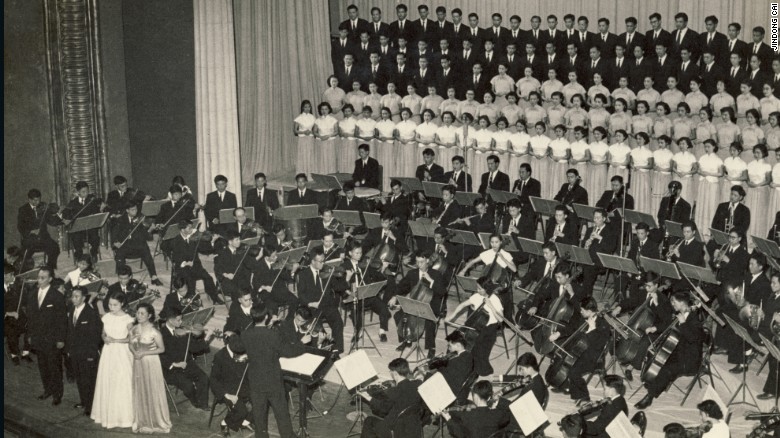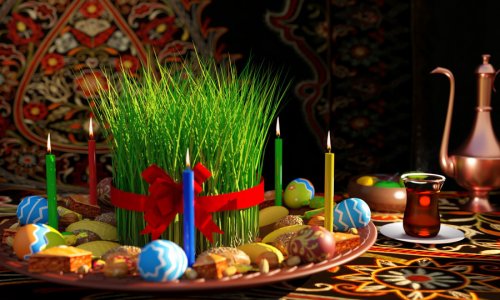Chances are, you've heard Ludwig van Beethoven's music.
He may have died in 1827, but his music is everywhere -- in concert halls, movie soundtracks, ring tones and sampled in songs by The Beatles.
Beethoven even made his way to China, where he's been an unlikely hero for over a century -- despite at times being banned.
Triumph over turmoil
It started in 1906 when Chinese scholar Li Shutong, who was most likely exposed to Beethoven while studying abroad, wrote an article introducing the German composer to the Chinese public.
Li focused on Beethoven's difficult life -- he suffered a host of financial and health problems, and hit a low point when he started losing his hearing in his mid-20s.
Within a few years, Beethoven's deafness was so pronounced he could no longer hear music. It was an affliction that frustrated him for the rest of his life, but it didn't prevent him from composing nine masterful symphonies, along with numerous other works.
The Chinese fell in love with the "image of this person who went through turmoil, obstacles, difficulties [who] at the end, was triumphant," said Jindong Cai, a conductor at Stanford University and co-author of a recent book, "Beethoven in China".
Beethoven's story matched Chinese ideals of perseverance, and "fit into Chinese culture -- [for example] my parents always said, you have to 'chi ku' -- only if you eat bitter, you can be better," Cai said.
"They looked at him as a fighter, and in 20th century China, the whole society was fighting -- fighting the old, fighting obstacles."
Public introduction
While European missionaries brought the tradition of Western classical music to China as early as the 1300s, it wasn't until much later that Beethoven's music was more widely introduced to the Chinese public.
In 1925, one movement of a Beethoven symphony was performed at the funeral of Sun Yat-Sen, an imposing figure largely regarded as the founding father of modern China after he helped overthrow the last ruling dynasty.
Things began changing years later as civil war broke out. A decades-long divide formed over whether Beethoven served capitalist or socialist ideals, an old or new China.
Some saw him "as representative of bourgeois decadence, while others saw him as an inspiration for revolution," wrote Cai and co-author Sheila Melvin.
Despite the debate, Beethoven's famous ninth symphony was performed at the 10th anniversary celebration of Communist Party leader Mao Zedong's 1949 civil war victory.
Mao, his wife, and Premier Zhou Enlai, all top Communist leaders, even secretly listened and studied Beethoven's music through the darkest days of the Cultural Revolution, a socio-political movement championed by Mao and a time when Western classical music was banned.
But outside the upper echelons of the Communist Party, many intellectuals and musicians were being punished for their love of Beethoven.
Fu Lei, a famous Chinese translator and art critic who translated writings about Beethoven into Chinese and helped popularize the composer, was denounced and suffered so greatly in the Cultural Revolution that he committed suicide.
Musical moments
Eugene Ormandy (center), late conductor of the Philadelphia Orchestra, with Chinese conductor Li Delun (left). President Nixon sent the orchestra on a historic trip to China in 1973.
Still, the Communist Party occasionally allowed Beethoven, at times in unusual contexts. In 1973, a Chinese group performed Beethoven for U.S. Secretary of State Henry Kissinger while he was visiting Beijing.
Then, in a strange twist, the end of the Cultural Revolution was signaled to the country in 1977 via a live radio broadcast of a Chinese orchestra playing a Beethoven symphony.
Beethoven even appeared in 1989, when students protesting in Tiananmen Square blasted recordings of "Ode to Joy," from the last movement of his ninth symphony.
Though the protest ended in a bloody crackdown, the government issued a commemorative silver coin the following year to mark the 220th anniversary of Beethoven's death, wrote Cai and Melvin. Beijing also added a biography of Beethoven to the mandatory middle school reading list.
Through the years, Beethoven has remained an unlikely hero in China, with his image enduring through tumultuous periods of China's recent history -- much as he persevered in life, noted Cai, who grew up in the Cultural Revolution and was forced to listen to Beethoven in secret himself.
He speculates that Beethoven has had such lasting power in China because it isn't pure "entertainment -- it is a philosophy of what he saw about the world," Cai said "He was using notes to explain the logic of the world."
(CNN)
www.ann.az
Follow us !











